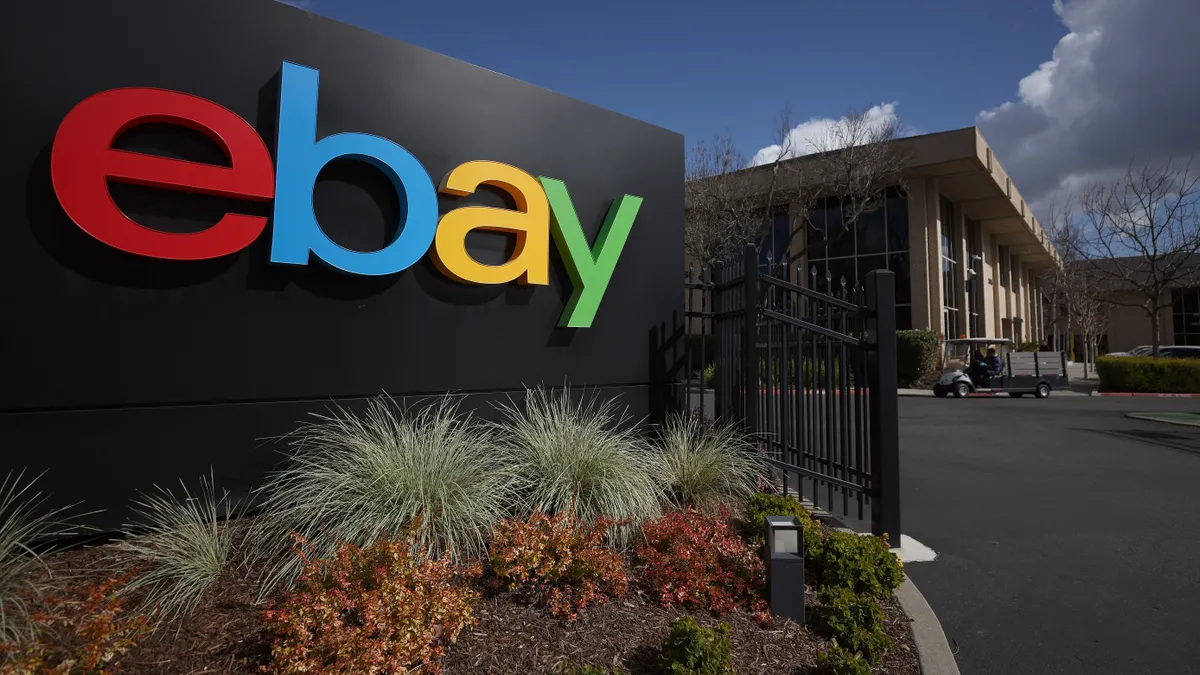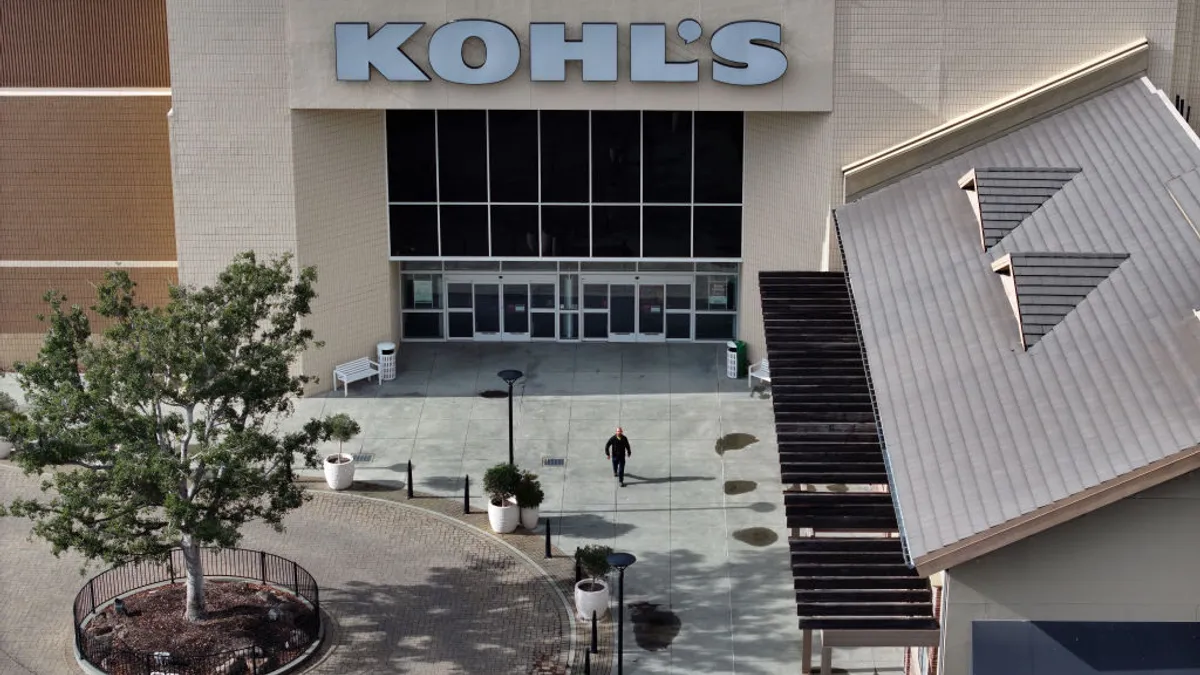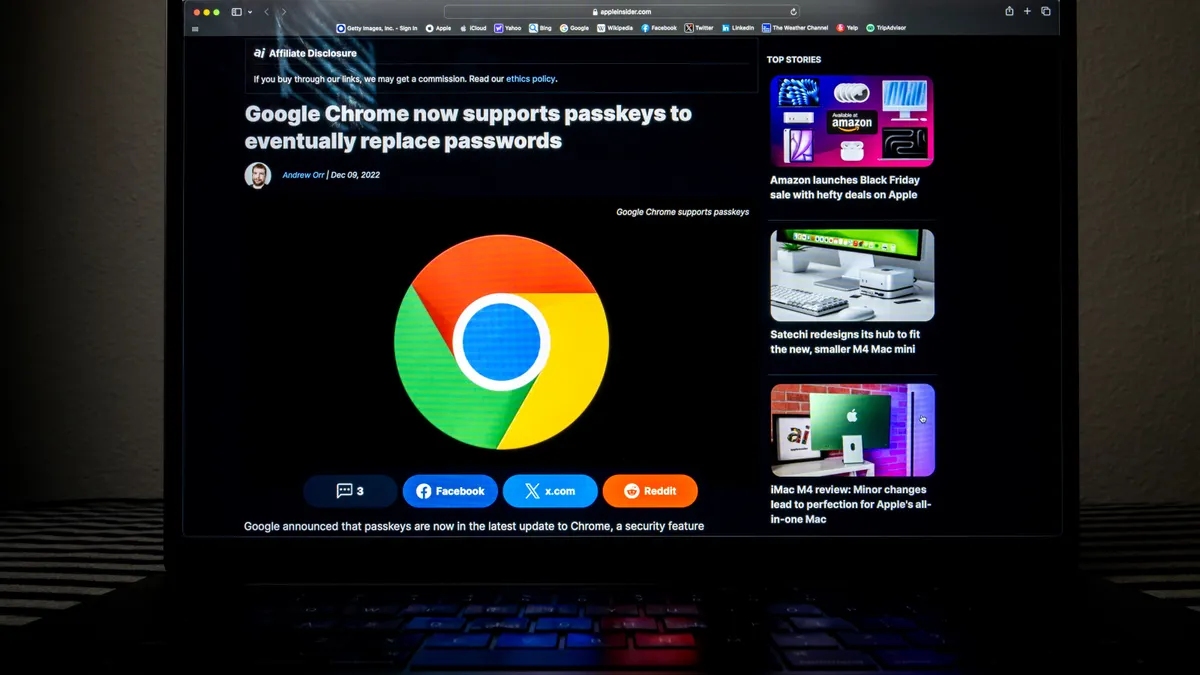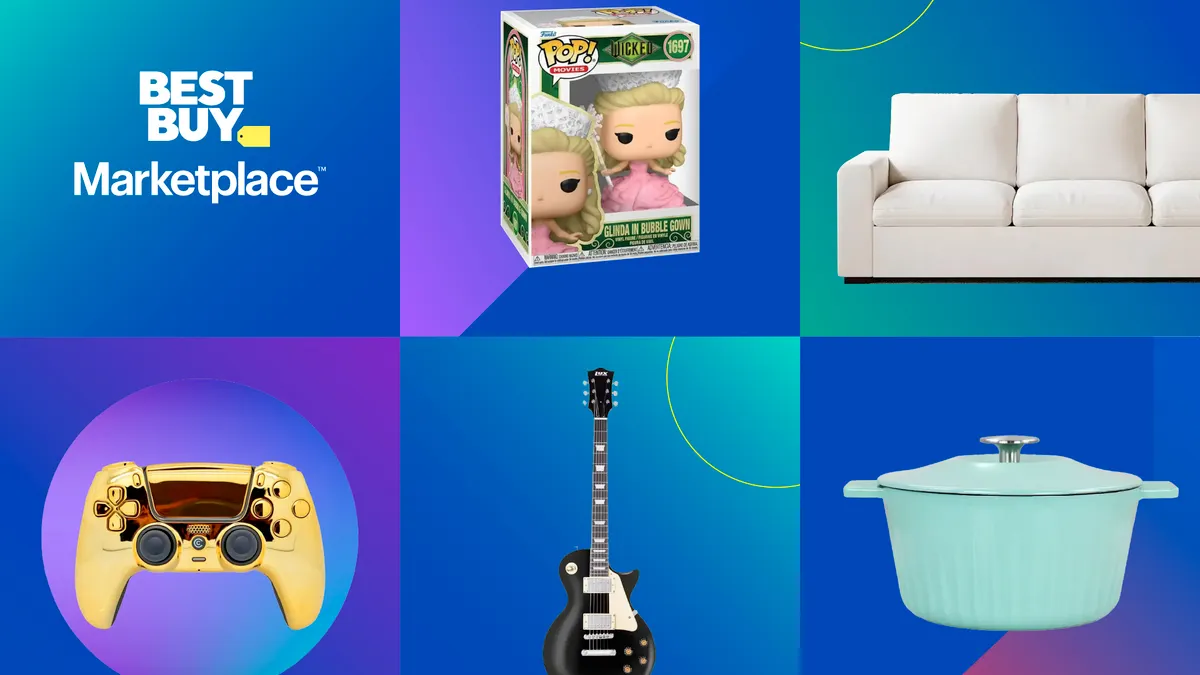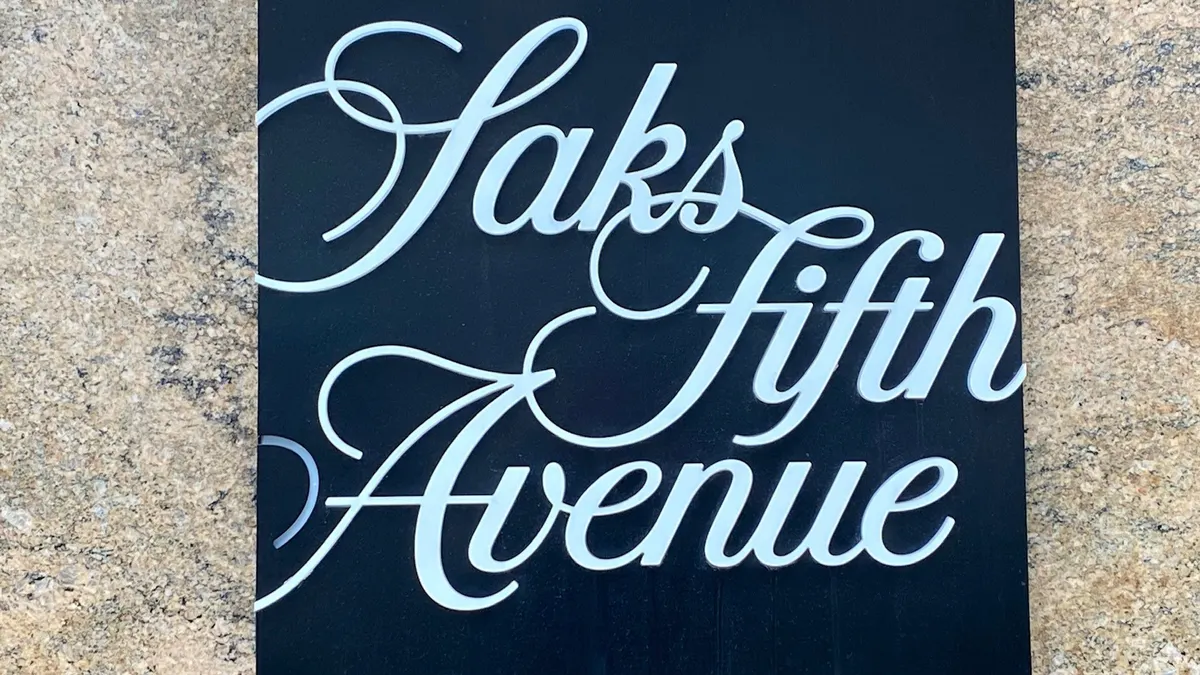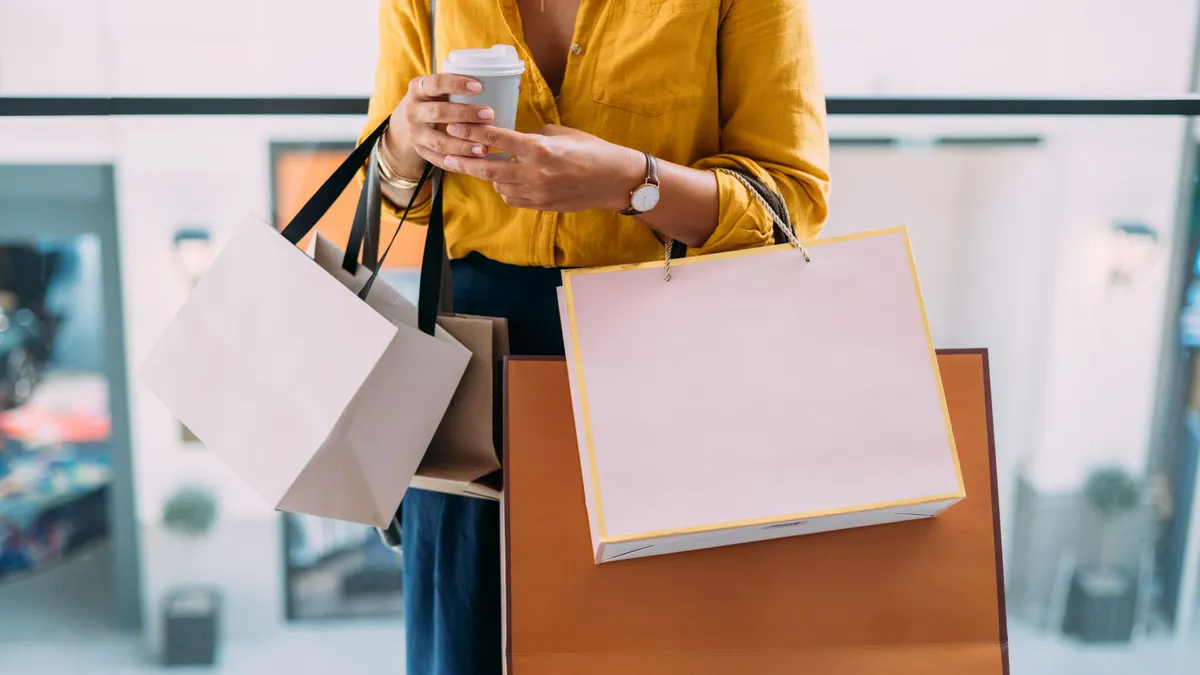A conversation about retail wouldn't be complete without the latest speculation about which category Amazon is set to disrupt next.
This time around, retail thought leaders are turning their sights on beauty, where Amazon already holds 21.1% of the U.S. market share — compared to Macy's 17.4% and Sephora's 15%, according to 1010data. And the choice doesn't surprise many, especially considering the success beauty retailers have found as of late. According to an Amazon spokesperson, the company has taken note that users have been searching for beauty keywords and brands not yet sold on the e-commerce site.
"Since we know the customer is super engaged and is expecting to find these products on Amazon we are committed to delighting her and innovating on her behalf by continuing to add selection," a spokesperson told Retail Dive in an email.
Amazon has a tendency to enter any and all markets performing well, from athleisure to footwear, and strike the fear of God into retailers operating in the space. The company's bold push into grocery last year with the acquisition of Whole Foods turned many retailer's heads, and announced Amazon's intentions of becoming a real threat in the arena. A similar move in the beauty space could have serious implications, but right now beauty is a different animal.
Amazon's current beauty offerings do well gathering replenishment shoppers, but the company's impact could be limited without brick-and-mortar locations to back it up — and on that front, Amazon is up against specialty retailers like Sephora and Ulta, both of whom are performing well online and off, launching engaging in-store experiences and offering compelling loyalty programs.
There's room for everyone at the (beauty) table
Unlike many retail categories, beauty is resonating well with customers almost across the board. Beauty's darling Sephora is the queen of in-store experiences, with beauty workshop-style stores and in-store augmented reality features, not to mention an exclusive, community feel, with benefits like access to a members-only social platform.
"[W]hen you constantly innovate, you somehow — I wouldn't necessarily say bullet-proof yourself — but you proof yourself for those lower cycles."

Hana Ben-Shabat
Partner at A.T. Kearney
And then there's Ulta. Online sales at the beauty giant grew a massive 63% in the third quarter and some have speculated its success could lead to an acquisition by another big player (Hint: Amazon or Walmart). But even with all the competition in the beauty space, these retailers are thriving, thanks in part to the power of the category.
"Everybody is subject to fluctuation in demand and that will always happen," Hana Ben-Shabat, a partner in the retail practice of global management consultancy at A.T. Kearney, told Retail Dive earlier this month, "[B]ut I think that when you constantly innovate, you somehow — I wouldn't necessarily say bullet-proof yourself — but you proof yourself for those lower cycles."
The e-commerce giant, powerful as it is, can't match some of these other beauty players when it comes to in-store experience and technology. The sector has been laser-focused on providing technologically-enhanced solutions for customers looking to try out products before committing to a purchase, with Estee Lauder and L'Oreal hiring new CIO's in October and the former also launching a makeup training using AR in December.
Lancome also added a virtual mobile try-on feature at the end of October (Sephora has had one for years) and MAC Cosmetics just launched an in-store AR mirror — experience-heavy features which Amazon will find it tough to strip them of from behind the company's wall of html text.
"It's a $450 billion industry and one that is very difficult to ignore if you are a giant like Amazon. But I just don't see it, not right now anyway."

Sam Cinquegrani
Founder and CEO of ObjectWave
That's not to say that innovations on Amazon's mobile app couldn't up the ante for the mega retailer — and help make customers more certain about purchasing cosmetics online — but the experiential element of shopping for beauty at a Sephora or an Ulta could allow those retailers to hold their own against an Amazon intrusion.
"As long as those retailers continue to [innovate], I just don't think Amazon really has an opportunity to break into that industry," Sam Cinquegrani, founder and CEO of digital strategy and services firm ObjectWave, told Retail Dive. "It's a $450 billion industry and one that is very difficult to ignore if you are a giant like Amazon. But I just don't see it, not right now anyway."
Amazon takes what Amazon wants
As we've seen time and again, all it takes is for Amazon to commit to a category to move in with full force. The voice assistant market practically belongs to Amazon, with the company collecting as much as 75% of the market share and releasing new Alexa partnerships and ventures almost weekly.
There's nothing to say the same couldn't happen in beauty. According to digital insights firm L2, 25% of Sephora brands already have an official presence on Amazon, meaning their demonstrating a noticeable gain in traction, and the e-commerce giant poses a serious threat for beauty retailers when it comes to replenishment. Chelsea Gross, L2's associate director of client strategy for beauty, said in a study of three top skincare products, 20% of customers had initially run into the product elsewhere and came to Amazon to buy it again.
"[T]hey might put all the investment into discovery at Sephora, but ultimately they're losing the sale to a third-party on Amazon."

Chelsea Gross
Associate Director of Client Strategy for Beauty at L2
"[T]hat replenishment shopper ends up being the most valuable shopper to our beauty brands," Gross said, noting that beauty brands that move over to Amazon do so mostly for the better margins. "So they might put all the investment into discovery at Sephora, but ultimately they're losing the sale to a third-party on Amazon."
Retailers like Sephora and Ulta can also combat the replenishment shopper problem, according to Gross, with loyalty programs that encourage shoppers to buy in-store by giving them discounts, access to exclusive events, etc.
Amazon is a threat, but physical beauty retailers are not in imminent danger. They're doing enough on in-store experience to win loyal customers. If Amazon wants to get into the space in a big way, though, an acquisition is the most likely way they'll do it — and Whole Foods provides the perfect precedent, Cinquegrani said.
But until that happens, Amazon faces an "uphill battle" to succeed, Cinquegrani said. At the end of the day, Amazon is an e-commerce company and beauty is a highly tactile category. Until the retailer decides to prioritize beauty, more traditional retailers might not have much to worry about.
"It continues to make [Amazon] the one-stop shop for everything."

Lauren Bitar
Director of Retail Consulting at RetailNext
Amazon hasn't prioritized beauty yet, but it's definitely on the company's radar. Beauty, after all, is such a key sector of retail that an aggressive move into the space would make sense for someone like Amazon, whose be-all-end-all is to become "the everything store." And with the number of successful private labels the company is producing, beauty could grow to become a bigger part of the company's strategy.
"It's one more reason someone will go onto your site, and then they'll buy things from other categories," Lauren Bitar, director of retail consulting at RetailNext, told Retail Dive. "It's another reason to be in a shopper's consideration. It continues to make [Amazon] the one-stop shop for everything."
How deep does the threat run?
It's fun to speculate about where Amazon will go next — like pharmacy, where Rite Aid has been tossed around as a potential acquisition, or even the department store sector, with a Nordstrom acquisition — but, as with all Amazon threats, retailers should take a step back and examine the threat from a distance.
An Amazon beauty takeover isn't imminent. The category is too experiential and retailers in the space are too innovative to be steamrolled by the e-commerce giant. Plus, according to Cinquegrani, Amazon's current brick-and-mortar connections (Whole Foods and Kohl's) just aren't enough to make an impact.
"I think partnerships can work up to a certain degree, but I don't see them making a really big inroad," Cinquegrani said, adding that Amazon, "would have to rethink how they're going to approach the market."
"I think there's a difference in perceived threat. Sephora is a prized beauty partner and now they're recognizing that they need to have an Amazon strategy."

Chelsea Gross
Associate Director of Client Strategy for Beauty at L2
But if you ask Amazon, it's already considering how to improve the online cosmetics experience. "Beauty e-tailing is ripe for innovation, especially in terms of how products are discovered and presented on the Web — and we are uniquely positioned to reinvent that experience," an Amazon spokesperson told Retail Dive. " … We will continue adding to our selection and we'll keep adding new content, features and functionality to make shopping for beauty products even easier and more enjoyable for our customers."
Just how seriously beauty retailers are taking that threat is unclear: Sephora declined to comment on Amazon as a competitor and Ulta did not respond to Retail Dive's request for comment. But L2's Gross believes some retailers might not be taking it seriously enough.
"I think there's a difference in perceived threat," Gross said. "Sephora is a prized beauty partner and now they're recognizing that they need to have an Amazon strategy. Sephora has a lot to lose, whereas department stores have other areas they can rely on."
Whatever the current threat, one thing is clear: when Amazon decides to turn its sights on the beauty sector, retailers better be ready for the market share battle that will follow. Because if it starts off anything like the Whole Foods acquisition, Amazon will be poised to shake the retail world — again.








